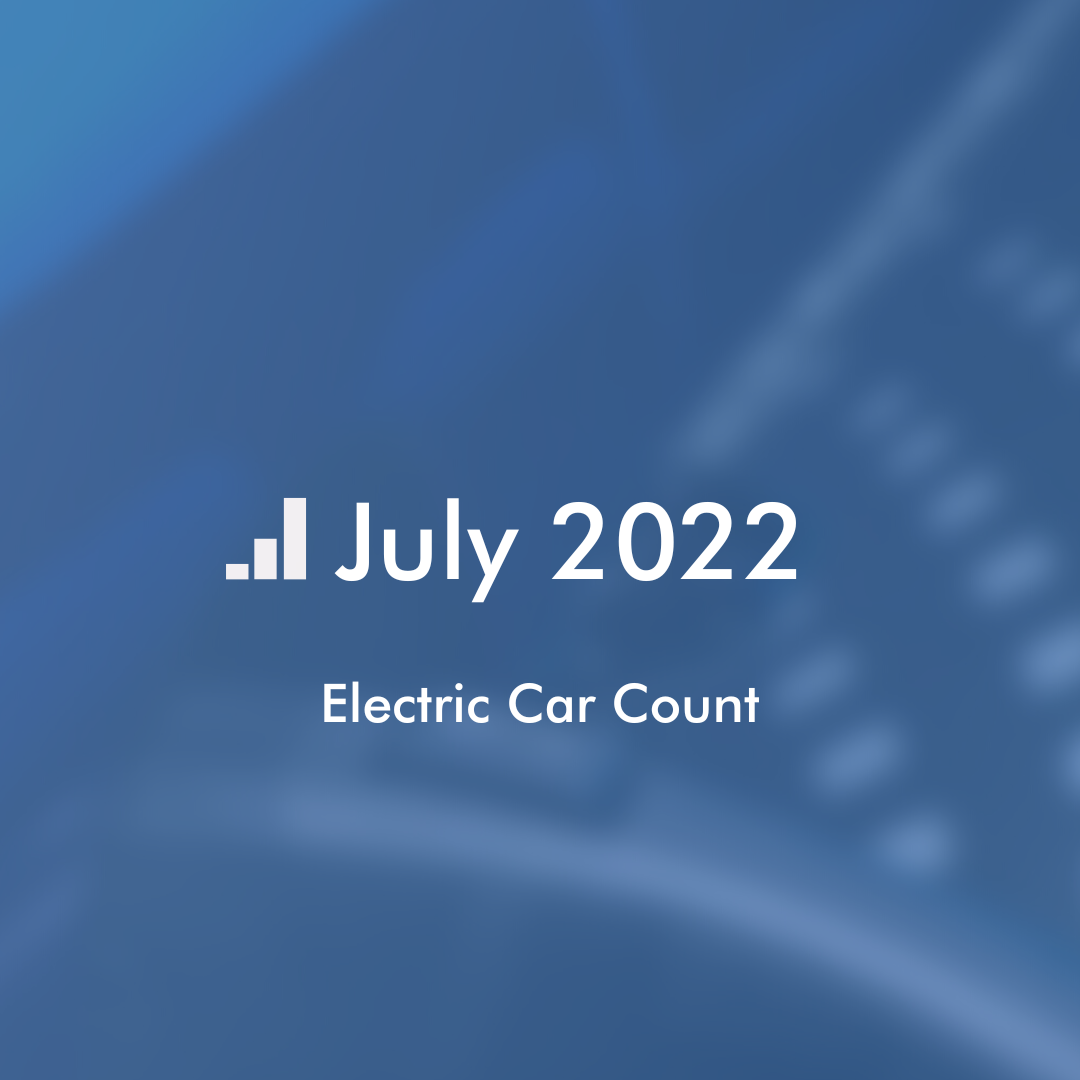
Notes from New AutoMotive
Access our latest blog posts, commentary and monthly Electric Car Count insights
2022 continues to be a record-breaking year for electric car sales
2022 continues to be a record-breaking year for electric car sales. However, in the first full month since the government scrapped the plug-in car grant on 14th June, electric car sales have dropped slightly. Year-on-year total car registrations were down 8% in July 2022 compared with July 2021.
Public EV Charging: Top 10 areas for public charging installations in April - July
The UK added another 1,721 public EV chargers nationally in Q2 of 2022. As of 1st July, the Department for Transport reports that the UK has 32,011 public chargers. But, as local councils start to take an increasingly active role in installing new charge points, some areas are starting to see huge increases in the number of local charge points.
Next Stop, ZEVs?
As Britain progresses its transition to full electrification, our cities will change for the better. Now is the time for inspired and imaginative solutions, to create a greener and cleaner future for all. Answering the question of how best to implement zero emission public transport will be key to achieving the country’s net zero targets.
The ZEV mandate can provide fresh clarity and impetus to the UK’s transition to zero emission vans.
There is an urgent need to electrify vans in Britain if the country is to achieve its goal of net-zero emissions by 2050. New AutoMotive’s Electric Van Count data for June shows that over 90% of new van registrations for that month were ICE models, with the overwhelming majority of these being high polluting diesel vehicles. The Government has a pivotal role to play in facilitating the transition away from ICE fuelled vans.
Electric Vans have doubled their share of the new van market since June last year
The government’s planned ZEV Mandate has proposed setting a zero emission sales target of 8% in 2024. As the market is already hitting this target the government should prioritise creating highly ambitious targets that will push the market forward, rather than hold it back.
EV registrations grew steadily in June, despite an overall shrink in new vehicle registrations.
Despite the array of disruptions facing global supply chains and a cost of living crisis that is rapidly eroding consumer purchasing power, there continues to be a steady growth in sales of electric cars in the UK. This is driven by consumer demand - often fuelled by concerns about rising fuel prices - but is held back by a lack of vehicle supply.
Hybrid sales declining: the start of the end for PHEVs?
6.5 millions electric vehicles were sold globally in 2021, with EVs representing 9% of all new car sales during this period. Despite these respectable global sales figures, the global pace of the transition to electric transport is uneven.
A grant scheme specifically for second-hand EVs must be the next step in Britain’s transition to a fully electric future.
The conclusion of the PiCG scheme was inevitable, as the UK enters a new phase in its transition to electric vehicles. However, it is essential the Government continues to support motorists looking to make the switch to EVs – especially car dependent families who rack up high annual mileage. In place of the PiCG, the Government must implement an interest-free loan scheme aimed at helping those who drive the most miles purchase second hand EVs.
Is Fiat going fully electric? Not quite
From next month, Italian car manufacturer Fiat will only sell electric or hybrid cars in the UK. The move follows Fiat releasing its new 500X and Tipo Hybrid in February 2022. This milestone is a step towards a set of targets outlined by Stellantis, Fiat’s parent company, in its 2021 financial report. Stellantis stated aim is for Fiat’s European range to be fully electrified by 2027, and for all vehicles it sells globally to be electric by 2030. The UK government has said it wants to end sales of petrol and diesel cars by 2030, with hybrids phased out from 2035.
EVs continue to grow in popularity despite market slump
Amid a slump in new car registrations in May, electric cars continued to grow in popularity - they were the only fuel type to grow the number of new cars registered and the share of the market.
Lessons learned from California
Countries including the UK have now pledged to end the sale of internal combustion engine (ICE) vehicles and are designing regulations to deliver that outcome - this is a long overdue recognition that markets struggle to address environmental and human health impacts and governments need to take action to force change. As we draft these regulations we need to learn the lessons from previous regulators.
Growth of EVs 'steady' as motorists grapple with prices at the pumps
April saw continued steady growth in sales of electric cars, with one in ten new cars registered in the UK being fully electric, up from 6.6% of all sales in April 2021. There was further evidence of a steady decline in the popularity of petrol as registrations fell from 77,500 in April 2021 to 58,400 in April 2022, or from 58% of new registrations to 54%.
Is the electric motorcycle market about to take off?
Although companies like Zero are still going, and indeed carving out a sizable niche in the realm of EV motorcycles, there are around 1.2 million motorcycles on our roads, and as of the end of 2020, just 0.4% of them were electric.
This could lead one to the conclusion that electric motorcycles are a failure, a niche toy. But don’t be mistaken, the motorcycle market saw its highest electric market share last month.
Sales of all-electric EVs were up by 63%
16% of all new cars bought in the UK in March 2022 were fully electric. This is up from 8% of the market in March 2021. Both diesel and petrol share of the market has fallen in the last 12 months, from 72% of sales last March, to 58% now. This shows people are continuing to migrate away from the combustion engine and towards pure EVs. Sales of all-electric EVs were up by 63% year on year, whilst sales of hybrids were actually down by 2%.
Campaign Call for Repeal of Pro-EV Law
A new campaign has been launched calling for the repeal of a law that they say unfairly discriminates against petrol and diesel vehicles. New research has shown that while there has been barely any improvement in the range of petrol and diesel vehicles over the last year, the distance that an average electric vehicle can travel on a single charge has increased year-by-year.
Convert your way to electric
If a car owner in the UK wants to make the switch to electric they will typically go about selling or scrapping their old combustion engine vehicle and buying a new, or second hand EV. This seems like a no-brainer, but in fact there is another way - retrofitting an existing car with an electric drivetrain.
Spring Statement: What does the fuel duty cut mean for the EV transition?
The cost of living has risen by 6.2% in the last 12 months since February, the fastest since the 90s. The energy crisis we were experiencing has only been exacerbated by the war in Ukraine with people’s bills rising and prices at the pump extortionate. Add to that the rising cost of food and people are facing a daunting year ahead.
‘Greenflation’ is a myth
The UK needs to become a leader in the energy transition, or someone else will
The global energy transition is no culture war. Despite contrarian arguments recently increasing in popularity - the long-term consequences of rejecting Net Zero will likely leave the UK poorer, more isolated, and increasingly dependent on foreign oil.
‘Discourses of Delay’ versus the facts at play
There has been a rise in contrarian arguments against the UK’s bid to become a world leader in the global energy transition. The basic argument appears to be that we should delay the transition to renewable energy, revert back to fossil fuels, and so (er, somehow) become energy independent – overlooking the fact we do not have enough oil and gas to do this.
Ending the UK’s dependence on Russian diesel
Appalled at the Russian atrocities in Ukraine, many western leaders are talking about embargoing Russian oil. In light of this, the UK has announced that it intends to phase-out imports of Russian oil by the end of 2022. The UK does not consume much Russian gas, but we do have a little-known reliance on Russian diesel. This blog examines our dependency on Russian diesel, alongside possible mitigations.




















